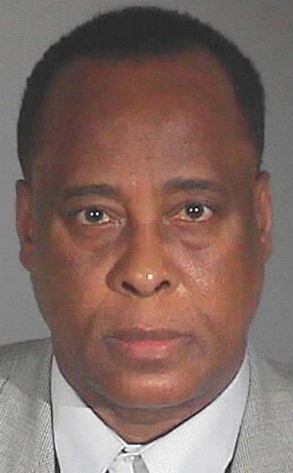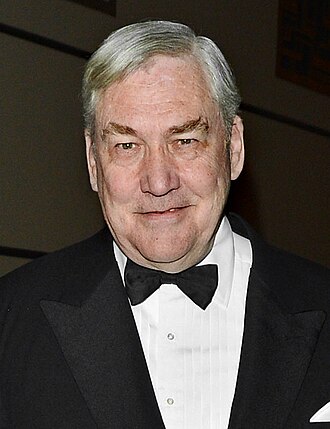Discover Your Roots
SIGN UPDiscover Your Roots
SIGN UPConrad is a male name of English origin, meaning "Bold Counsel." This name is associated with individuals who possess a bold and wise nature. It is commonly used in the United States for places and businesses, including Conrad, Iowa, and Conrad Hotels. Additionally, the name has international significance, with references to locations such as Conrad Mountains in Antarctica and Conrad, Alberta, Canada. In addition to its geographical associations, Conrad is also linked to organizations like CONRAD, which promotes reproductive health in the developing world. The name Conrad carries a sense of strength and wisdom, making it a fitting choice for individuals who possess these qualities.

Conrad Nicholson Hilton (December 25, 1887 – January 3, 1979) was an influential American hotel magnate and politician, best known for founding the Hilton Hotels chain. Born in San Antonio, New Mexico, Hilton began his career as a Republican representative in the first New Mexico Legislature but later shifted his focus to entrepreneurship. In 1919, he purchased his first hotel, the Mobley Hotel in Cisco, Texas, and subsequently capitalized on the oil boom, ultimately establishing the world's first international hotel chain. Despite facing financial challenges during the Great Depression, Hilton successfully expanded his hotel empire across the United States and abroad, acquiring iconic properties such as the Waldorf-Astoria in New York City. Beyond his business ventures, Hilton was renowned for his philanthropy, leaving the bulk of his estate to the Conrad N. Hilton Foundation upon his death in 1979. His enduring legacy continues to shape the hospitality industry and charitable initiatives worldwide.

Conrad Robert Murray, born on February 19, 1953, is a Grenadian-American former cardiologist and convicted felon, known for his involvement in the death of pop icon Michael Jackson. Murray served as Jackson's personal physician on the day of the singer's death in 2009. In 2011, he was convicted of involuntary manslaughter for administering a lethal dose of the surgical anesthetic propofol to Jackson, leading to his untimely demise. Murray's upbringing was marked by financial hardship, and he overcame obstacles to pursue a career in medicine. He graduated with honors from Texas Southern University and continued his medical education at Meharry Medical College and the University of Arizona. Throughout his career, Murray worked in various medical institutions, including founding the Acres Homes Heart and Vascular Institute in Houston. His association with Michael Jackson began in 2006, eventually leading to his role as Jackson's personal physician. Murray's controversial memoir, "This Is It!", stirred public criticism for its content. In 2023, Murray established the "DCM Medical Institute" in Trinidad and Tobago. His personal life has been marred by financial difficulties, legal issues, and complex relationships, including fathering several children with different women. The death of Michael Jackson remains a pivotal event in Murray's life, shaping his public perception and legal history.

Conrad Moffat Black, Baron Black of Crossharbour, is a Canadian-British writer, former politician, newspaper publisher, financier, and convicted fraudster. Born in Montreal, Quebec, to a family with significant holdings in Canadian manufacturing, retail, and media businesses, Black's father was businessman George Montegu Black II. Black sold off non-media holdings of the family business to focus on newspaper publishing and controlled the once third-largest English-language newspaper empire, Hollinger International. He was convicted on four counts of fraud in a United States district court in Chicago in 2007, with subsequent legal proceedings and a federal pardon in 2019.Apart from his business and legal endeavors, Black is a prolific author, having written eleven books primarily in the fields of Canadian and American history, including biographies of notable figures. He has also hosted interview shows on the Canadian cable network VisionTV and is a political conservative with some idiosyncratic views, including his support for Roosevelt's New Deal.Black's early life was marked by his education at prestigious preparatory schools and subsequent academic pursuits at various institutions, including Carleton University, Osgoode Hall Law School of York University, Université Laval, and McGill University, where he completed a law degree and a Master of Arts degree in history.Throughout his life, Black has been involved in various spheres, from business and politics to writing and academia, leaving a complex and controversial legacy.

Conrad Stafford Bain (February 4, 1923 – January 14, 2013) was a Canadian-American actor known for his roles in television sitcoms. He gained recognition for his portrayal of Dr. Arthur Harmon on "Maude" (1972–1978) and as Phillip Drummond on "Diff'rent Strokes" (1978–1986). Born in Lethbridge, Alberta, Conrad served in the Canadian Army during World War II before pursuing acting. He honed his skills at the Banff School of Fine Arts and the American Academy of Dramatic Arts in New York. Bain's career included notable stage performances and appearances in films such as "Lovers and Other Strangers" and "Bananas." He was also a founding member of the Actors Federal Credit Union, advocating for financial rights for performers. Bain's personal life included a long marriage to Monica Sloan and he had two sons and a daughter. He passed away in 2013 at the age of 89. Conrad Bain's legacy continues to be celebrated in the entertainment industry for his memorable contributions to television and stage performances.

Conrad Lafcadio Hall, ASC (June 21, 1926 – January 4, 2003) was a renowned French Polynesian-born American cinematographer. His exceptional career earned him numerous accolades, including three Academy Awards, three BAFTA Awards, and five American Society of Cinematographers Awards. Hall's impressive cinematography contributions include iconic films such as "Butch Cassidy and the Sundance Kid" (1969), "American Beauty" (1999), and "Road to Perdition" (2002), for which he received Academy Awards for Best Cinematography. Notably, Hall was also recognized for his work on "Cool Hand Luke" (1967), "Fat City" (1972), and "Marathon Man" (1976). His significant impact on the film industry was further acknowledged when he was named one of history's ten most influential cinematographers. Hall's journey into the world of cinematography began after attending the University of Southern California's School of Cinema-Television, where he developed a deep passion for storytelling through imagery. His career took off after collaborating with fellow filmmakers, leading to his groundbreaking work in the industry. Conrad Lafcadio Hall's legacy continues to inspire and influence cinematographers and filmmakers worldwide.
All images displayed on this page are sourced from Wikipedia or Wikimedia Commons.We use these images under their respective Creative Commons or public domain licenses. Wherever applicable, author attributions and license information are provided. If you believe an image is used incorrectly or outside its license terms, please contact us so that we can review and correct the issue.